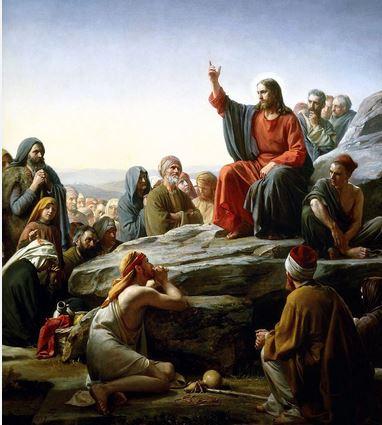Logos

Logos is a term with a profound history and significance, especially in philosophy, theology, and mysticism. It originates from ancient Greek thought and has been used to describe divine reason, speech, and the principle of order in the universe. Let’s explore its different meanings across various traditions.
🌟 The Meaning of Logos:
-
In Ancient Greek Philosophy:
-
The word Logos comes from the Greek word λόγος, meaning reason, word, or principle.
-
Heraclitus (c. 535 – 475 BCE), one of the pre-Socratic philosophers, is credited with first developing the concept of Logos in the sense of an ordering principle of the cosmos. For Heraclitus, Logos was the rational structure that governs the universe, maintaining its balance and unity.
“The Logos is common to all, but most people live as if they had a private understanding of the world.” — Heraclitus
-
According to Heraclitus, everything in the world is in a constant state of flux, and the Logos is the principle that governs this change. It is the rational principle that ensures order in the seemingly chaotic and dynamic world.
-
-
In Stoic Philosophy:
-
The Stoics, including philosophers like Zeno of Citium and Epictetus, took the concept further. They viewed Logos as the Divine Reason or universal law that pervades and sustains the cosmos.
-
They believed that humans should align their actions with the Logos, living in harmony with the natural order and rationality of the universe.
-
-
In Christian Theology**:
-
The concept of Logos takes on a central role in Christian theology, particularly in the Gospel of John.
-
In the opening verses of the Gospel of John, Logos is identified with Christ:
“In the beginning was the Word (Logos), and the Word was with God, and the Word was God.” — John 1:1
-
Here, Logos is often translated as "Word" or Divine Speech. It signifies the eternal, creative principle of God, through which the world was made, and in Christian thought, it is also associated with Jesus Christ as the incarnation of divine reason.
-
Logos in this context represents the divine wisdom and rational principle that brings creation into being, and in Christian mysticism, it is a manifestation of God’s presence in the world.
-
-
In Gnosticism:
-
Gnostics also used the term Logos, but in their worldview, it often had a more esoteric and mystical meaning. The Logos was seen as a divine intermediary that bridges the gap between the transcendent God and the material world.
-
It was believed that the Logos played a role in revealing hidden spiritual knowledge (gnosis) to humanity, bringing souls closer to the divine.
-
-
In Mysticism and the Occult:
-
In mystical and occult traditions, Logos is often linked to the creative force that underlies all of existence. It is seen as the divine spark or light of consciousness that animates the world, seen as the force behind manifestation.
-
Hermeticism, a spiritual tradition based on the writings attributed to Hermes Trismegistus, speaks of the Logos as a divine mind that creates and orders the universe, imbuing it with purpose and meaning.
“As above, so below. As within, so without.” — The Hermetic Principle
-
✨ Logos in the Modern Context:
-
Philosophical Influence: The term Logos has influenced modern philosophy, particularly in the fields of metaphysics, epistemology, and ethics. It is seen as the rational structure of reality that we can know and understand, guiding our reasoning and actions.
-
Logos and Language: In the realm of linguistics and semiotics, Logos is closely associated with language and meaning. It refers to the ability of language to structure and convey rational thought and to shape our understanding of the world. This is reflected in the phrase "the Word" (Logos) in religious texts, where language becomes the means of divine revelation.
🌍 The Relationship Between Logos and Creation:
-
Creation and Order: Logos is often linked to the creation of the universe and the maintenance of cosmic order. It is the rational principle that governs the functioning of the universe, from the laws of nature to the unfolding of human history.
-
Divine Intellect: Logos can also be seen as the divine intellect of God that manifests through creation. In Christianity, Logos is the means by which God creates, sustains, and reveals Himself to the world.
-
This is why many spiritual traditions emphasize the importance of alignment with Logos: living in accordance with the rational order of the universe brings the individual closer to divine truth and understanding.
-
💭 Personal and Spiritual Dimensions of Logos:
-
Logos as Inner Truth:
-
In mystical thought, Logos is not only something external (like divine reason or language) but also an inner truth that one can come to realize through direct experience. It represents the inner Word or divine wisdom that can be discovered within oneself.
-
-
Logos as Divine Guidance:
-
Logos can be understood as divine guidance or inspiration that directs individuals toward a life of virtue, truth, and enlightenment. By seeking alignment with Logos, individuals can live more authentically and with deeper purpose.
-
🌿 Exploring Logos in Your Life:
-
Philosophical Reflection: Consider Logos as the guiding rational principle in your life. How can you live in harmony with the deeper logic of the universe — the natural law and the moral order? This involves reflecting on your thoughts, actions, and emotions to ensure they align with truth, reason, and goodness.
-
Spiritual Practice: If you’re drawn to spiritual or religious practices, think of Logos as the divine light or guiding force. Seek it through practices like meditation, prayer, and contemplation, where you open yourself to the Divine and the deeper wisdom of existence.

